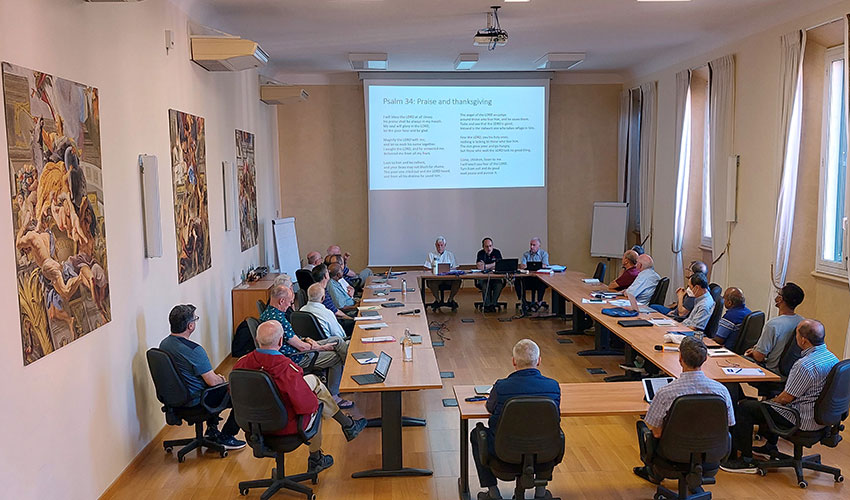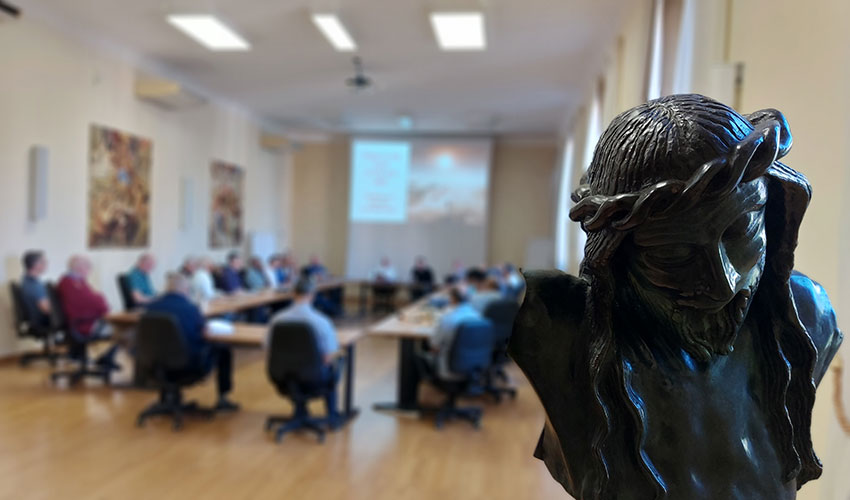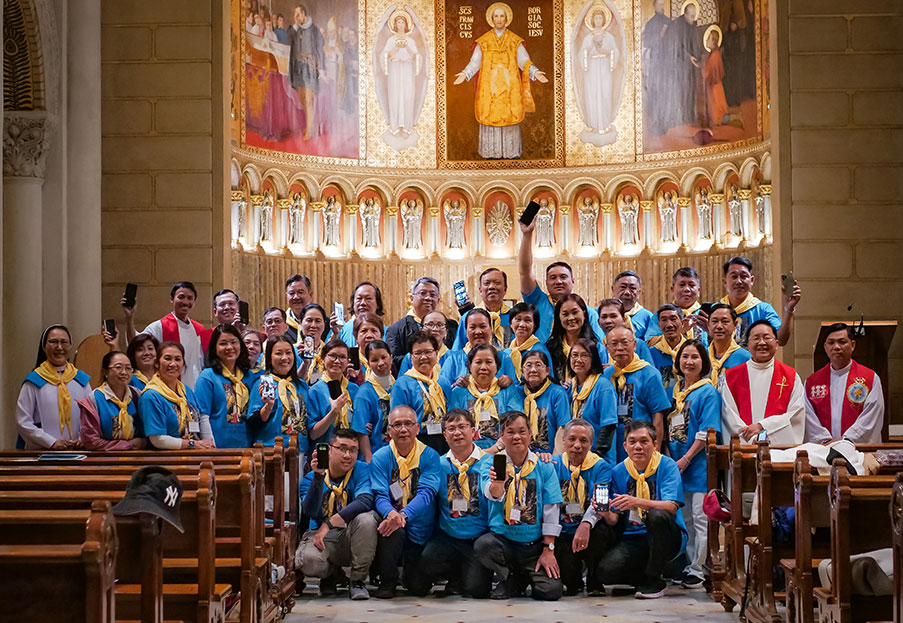The Catholic identity of our educational mission
Father General’s Extended Council, the Consiglio Allargato, began one of its three annual meetings today, 12 September. The Extended Council brings together not only the General Assistants but also the Sector Secretaries and the Presidents of the six geographical Conferences. The meeting is being held this time at the General Curia.
The
main theme is one that has attracted much attention recently, especially in the
past twenty years. Father Sosa wants his advisors to shed light on how best to reaffirm
“the Catholic identity of our educational mission in the global and
socio-political contexts of today”. The aim of the meeting is to consider how
this identity can be expressed both at the level of the institutions themselves
and in the various programmes they offer. The contexts that make in-depth
reflection on this subject especially urgent include the following: the
secularisation that is spreading even in parts of the world where it was
previously of less concern, the rise of nationalism and its consequences in
various countries, and the strengthening of certain trends such as populism,
political polarisation and a “post-truth” environment.

In a context of prayer and discernment, the members of the Expanded Council will reflect on the ways in which these current socio-political trends affect our apostolic commitments in education. In sum, the focus will be on how the Ignatian tradition and its age-old pedagogical elements can inform our reflection and action so that we are able to respond to the complex challenges of today’s specific contexts.
Important documents that in the past have inspired the Society’s reflection on education will of course be used, including speeches of Father Arrupe and Father Kolvenbach, but excerpts from Pope Francis’ encyclical Fratelli tutti will also be considered. Personal and community prayer, as well as spiritual conversation in small groups, will allow everyone to listen, to be heard, and to contribute fully.

At the beginning of each day, the programme will identify the “grace desired,” always following the Ignatian method, Those graces desired give us valuable indications of the spirit that animates the whole session. They are the following:
• That we may be open to seeing, discerning and interiorizing the lights and shadows of our times, and to understanding the impact that major socio-political trends are having on our world and on our educational ministry.
• That we may grow in gratitude for and appreciation of the gift of our Ignatian tradition as it has taken form in the ministry of Jesuit education.
• That we may become increasingly aware of the importance of fostering the experience of transcendence (the experience of God) in the life of the children, adolescents, and young adults involved in our educational endeavors.
• That we may become increasingly aware that our educational ministries need to be instruments of change for the betterment of this world, and that each person needs to become sensitive to this divine call and capable of responding to it generously.
• As we consider and ponder the recent Vatican Instruction, “The Identity of the Catholic School for a Culture of Dialogue”, we ask the Spirit of God to inspire in us peace, hope and love, and to grant us a genuine “Sentire cum Ecclesia”, a sense of close communion with the Church.
Throughout the week, we are all invited to accompany Father General and his Counselors through prayer.







